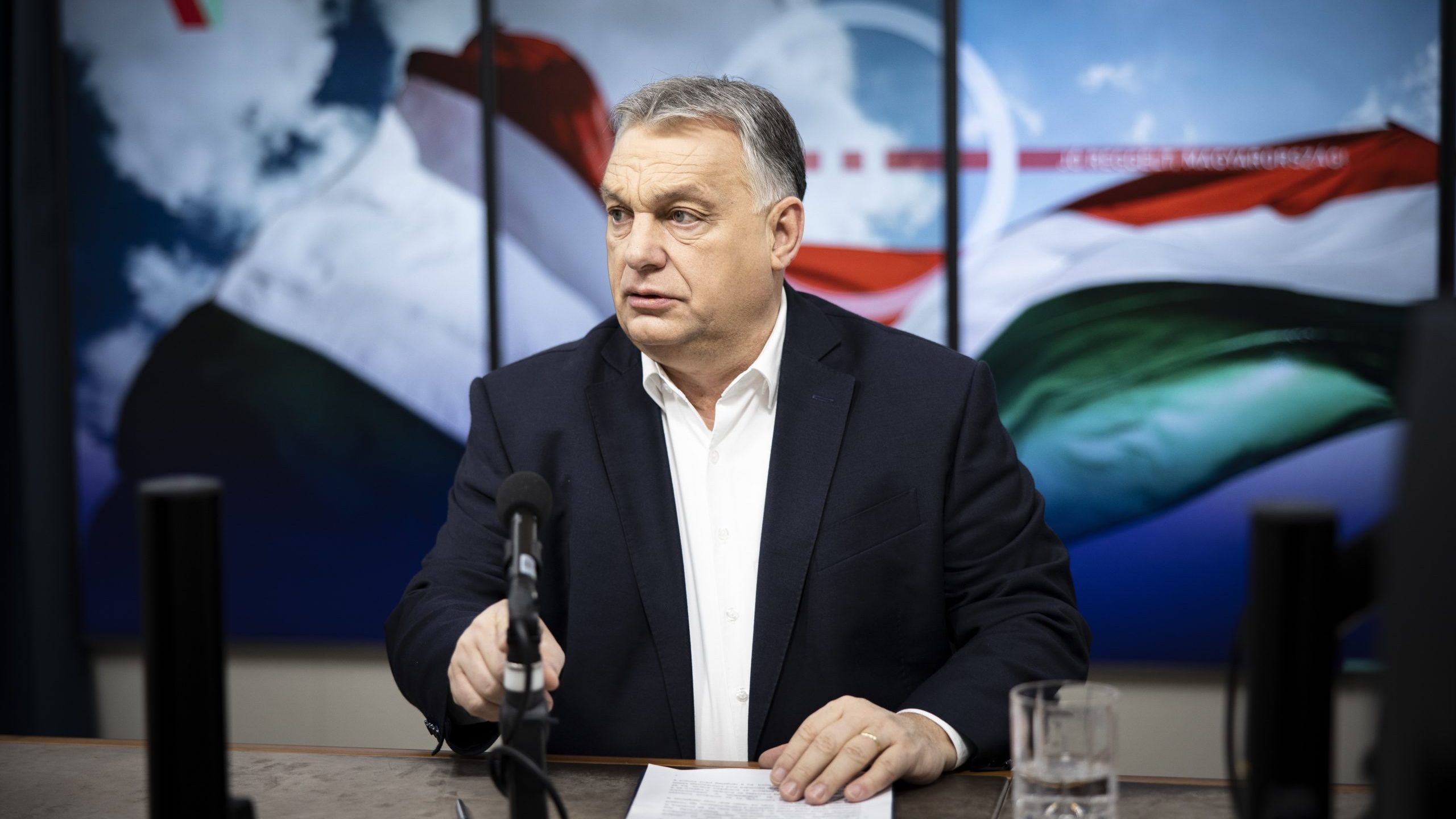
“Over the past twenty years we have tolerated the existence of these organisations, but their behaviour in relation to migration is the final straw”, the Prime Minister said. He stated that “Hungary cannot afford to allow organisations that remain in the shadows – not declaring who they receive their money from and for what purposes – to continuously encourage migrants to break Hungarian law to somehow get into the country”.
“By doing so, international organisations which are primarily linked to George Soros have overstepped a line”, Mr. Orbán said.
In the radio interview the Prime Minister also criticised the European Union’s planned border control system, which in his view is a “nightmare” and would mean the “harassment” of EU citizens. In addition he said that the whole passport checking system could cause delays of up to 8–10 hours along the Hungarian-Croatian and Hungarian-Romanian borders. “While illegal migrants are continuously being allowed to enter the EU, law-abiding European Union citizens with passports would be required to undergo full screening”, he observed, adding that it is in everyone’s fundamental interests to make Brussels see reason on this issue.
In relation to reductions in public utility charges, Mr. Orbán repeated his view that in future Hungary should continue to determine public utility rates, but Brussels – which wants to appropriate this sphere of competence – should not be allowed to do so.
According to the Prime Minister, the Brussels bureaucrats are continuously plotting to transfer as many spheres of competence as possible from Member States to themselves. The EU “is not a realm of heavenly peace, but a battle zone”, in which we must continuously struggle with the bureaucrats to prevent them from seizing Hungarian spheres of competence, he said.
With regard to Brexit, Mr. Orbán said that Hungary does not want to punish the British, who “are standing on the foundations of common sense”. The Hungarian government’s view is that the EU should not allow there to be bad relations with the UK, even after British withdrawal from the Union. Accordingly, Hungary wants a “fair Brexit”, instead of acting “like a resentful little hamster”, he added.
The Prime Minister also mentioned the EU plan to standardise tax regulations, saying that “Central Europe is competitive compared to Western Europe, and – thanks also to the tax system – many Western companies accordingly feel it is better to establish a factory here than at home, which in turn generates heated debate there”. He added that “This is a competition for investment, which is good, and should not be prohibited”. The Prime Minister also declared that, if required, Hungary is prepared to exercise its veto on the issue of tax competition.
Mr. Orbán also stressed that in the EU the free movement of labour and capital are interlinked, and separating them is unacceptable – for example, Austria wanting its capital to be able to move freely to Hungary, but at the same time not wanting Hungarian workers in Austria. If Austria wants to punish Hungary, he said, “we will punish Austrian capital”.
He also criticised the Austrian idea that Hungarians who work and pay taxes in Austria should only receive the same family benefits as Austrians if their children are also there with them.
“They are trying to amend minor details of regulation by stealth”, and “once ten minor details have been amended, the whole situation changes”, he said. “This covert withdrawal of spheres of competence and amendment of Europe’s basic treaties is something that Hungary will not accept”, he remarked, calling for the amendment of the basic treaties to be negotiated openly, and not “furtively”.
The Prime Minister also identified the reason for the EU suffering from crises today as being that nobody is adhering to regulations. The Germans and the French were allowed to exceed budget limits, he said, the Greeks were exempted from financial regulations, then the Greeks and the Italians were allowed to ignore the Schengen regulations; then the Germans themselves disregarded the Schengen regulations.
Mr. Orbán said that the EU is also attempting to restrict funding for job creation, and its attacks are now beginning to gain in strength.
In relation to this the Prime Minister mentioned the public work programme, clarifying that “There will always be people who are unable to find employment on the job market, and they too must be offered work.
Accordingly, there will always be a need for public work; but the good feature of the system is that it only relates to people who are truly unable to find work anywhere else”.

